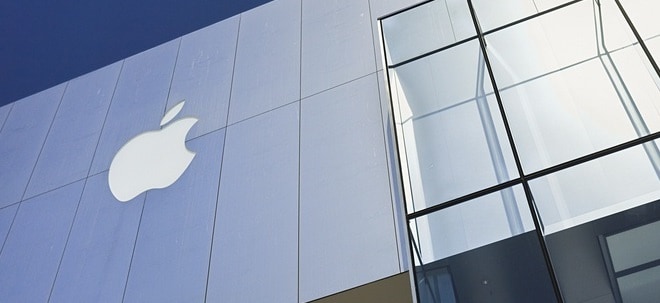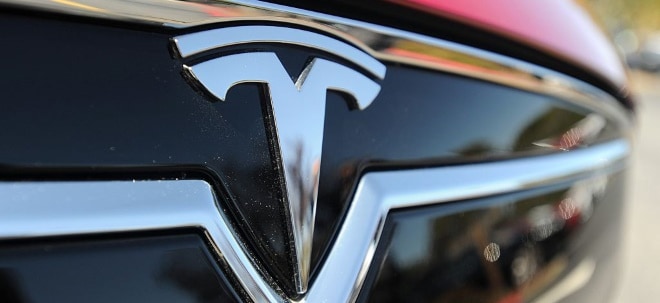Lyocell Market to Reach $3.3 Billion, Globally, by 2034 at 8.9% CAGR: Allied Market Research
PORTLAND, Ore., Oct. 29, 2025 /PRNewswire/ -- Allied Market Research published a report, titled, "Lyocell Market by Production Process (Spunbonded, Melt-Blown, and Others), Application (Apparel, Home Textiles, Automotive, Medical, Construction, and Others), Price Point (Premium, and Economy), Sales Channel (Online and Offline), and Income Group (High Income and Low Income): Global Opportunity Analysis and Industry Forecast, 2025-2034". According to the report, the lyocell market was valued at $0.6 billion in 2010, and is estimated to reach $3.3 billion by 2034, growing at a CAGR of 8.9% from 2025 to 2034.

Download Sample Pages of Research Overview: https://www.alliedmarketresearch.com/request-sample/A178620
Increase in Consumer Demand for Sustainable Textiles
Lyocell has emerged as a favored choice among eco-conscious buyers due to its environmentally responsible production process and natural origin. As consumers become increasingly aware of the environmental footprint of their clothing, they are actively seeking alternatives to conventional fibers like polyester and non-sustainably produced cotton. Lyocell is biodegradable and compostable under industrial conditions, further appealing to sustainability-minded consumers who are concerned about textile waste ending up in landfills. In addition to its environmental credentials, lyocell also offers superior comfort, breathability, and softness characteristics that add to its desirability in products ranging from apparel and underwear to bed linens and activewear. As a result, many fashion brands have started to incorporate lyocell into their product lines to meet consumer expectations for transparency and eco-responsibility. Spinnova (Finland) launched its Woodspin factory in May 2023, producing 1,000 MT/year of fully biodegradable textile fiber from wood and waste no harmful chemicals and in June 2025 agreed to take full ownership of the facility. Moreover, in June 2023, ACEGreen (Taiwan) teamed up with Circ to produce filament lyocell from cotton pulp—advancing filament applications while promoting recycled content.
Report Coverage & Details:
Report Coverage
| Details
|
Forecast Period
| 2010–2034
|
Base Year
| 2024
|
Market Size in 2010
| $0.6 billion
|
Market Size in 2034
| $3.3 billion
|
CAGR
| 8.9 %
|
No. of Pages in Report
| 576
|
Segments Covered
| Application, Sales Channel, Production Process, Price Point, Income Group, and Region
|
Drivers
| - Growth of fast fashion & premium fashion brands - Growth in demand for e-commerce fashion platforms
|
Opportunity
| Complex and Hazardous Recycling Processes
|
Restraint
| - Competition from other sustainable fiber - Expansion of blending with recycled fibers
|
Europe Green Deal and carbon neutrality goals
The EU Green Deal and the European Union's broader carbon neutrality goals are playing a pivotal role in shaping the future of sustainable textiles, including the demand and adoption of lyocell fibers. Launched in 2019, the European Green Deal is a comprehensive roadmap designed to make the EU climate-neutral by 2050. One of its major components is to promote sustainable and circular production practices across industries — with textiles being a high-priority sector due to its significant environmental impact. This aligns directly with the environment-friendly profile of lyocell, as it is produced using a closed-loop process that minimizes water and chemical waste while utilizing renewable raw materials like sustainably harvested wood pulp. In March 30, 2022, the EU adopted its Strategy for Sustainable and Circular Textiles, within the Green Deal framework, aiming for textiles that are durable, repairable, recyclable, and largely made from recycled fibers by 2030.
Request For Customization: https://www.alliedmarketresearch.com/request-for-customization/A178620
Certification schemes (e.g., OEKO-TEX®, FSC®, TENCEL™) boosting consumer trust
Certification schemes such as OEKO-TEX®, FSC® (Forest Stewardship Council), and TENCEL™ are instrumental in building consumer trust in lyocell fibers and driving their market adoption. In a landscape where greenwashing is increasingly scrutinized, these certifications serve as verifiable indicators of environmental responsibility, ethical sourcing, and safety. OEKO-TEX®, for instance, certifies that textiles are free from harmful substances, ensuring that lyocell garments meet strict human-ecological safety standards. This is particularly reassuring for consumers buying clothing for babies, people with sensitive skin, or health-conscious buyers in general. Meanwhile, FSC® certification guarantees that the wood pulp used in lyocell production comes from responsibly managed forests that meet stringent environmental, social, and economic standards. Furthermore, TENCEL™, a trademark of the Lenzing Group, adds another layer of trust by representing Lyocell fibers made under certified closed-loop production systems. The TENCEL™ brand assures consumers that the fibers have been produced with high resource efficiency and low environmental impact. These branded and certified fibers often carry a premium image, appealing to both environmentally conscious shoppers and high-end fashion brands.
Advances in fiber blending (Lyocell + wool, cotton, hemp)
Advances in fiber blending, particularly involving lyocell with natural fibers such as wool, cotton, and hemp, have significantly expanded the versatility and appeal of Lyocell-based textiles. These innovations allow manufacturers to enhance the performance and feel of fabrics, catering to a broader range of applications across fashion, home textiles, and technical sectors. By combining lyocell with other fibers, producers can optimize comfort, strength, thermal properties, and aesthetic finishes while maintaining or even improving the overall environmental profile of the final product. In May 2022, Lenzing introduced a limited-edition TENCEL™ lyocell fiber containing ~20% hemp pulp (replacing part of wood pulp), produced in a closed-loop system. Candiani Denim used it to create compostable, stretchable denim ("Coreva")—a major push for biodegradable, wood-free fabrics.
Leading Market Players: -
- Sateri
- Yibin Grace Group Co., Ltd
- Hyosung Advanced Materials
- Asia Pacific Rayon Limited
- Tangshan Sanyou Xingda Chemical Fiber Co., Ltd.
- Baoding Swan Fiber Co., Ltd.
- Marchi and Fildi Group
- Tintex Textiles
- FORMOSA TAFFETA CO., LTD
- Aditya Birla Yarn
- Lenzing AG
- AceGreen Eco-Material Technology Co., Ltd.
The report provides a detailed analysis of these key players in the lyocell market. These players have adopted different strategies such as new product launches, collaborations, expansion, joint ventures, and agreements to increase their market share and maintain dominant shares in different regions. The report is valuable in highlighting business performance, operating segments, product portfolio, and strategic moves of market players to highlight the competitive scenario.
Recent Key Developments
- In November 2024, Lenzing AG (Austria) expanded its Lyocell Dry lineup with two fibers suitable for nonwoven hygiene applications, fine and coarse types, to meet demand in medical and hygiene products.
- In September 2023, Smartfiber AG & Lenzing began co-developing Lyocell Shortcut fibers as separators in lithium-ion batteries for energy-storage applications.
Want to Access the Statistical Data and Graphs, Key Players' Strategies: https://www.alliedmarketresearch.com/lyocell-market/purchase-options
𝐒𝐢𝐦𝐢𝐥𝐚𝐫 𝐑𝐞𝐩𝐨𝐫𝐭𝐬
- Lyocell Fibers Market: Global Opportunity Analysis and Industry Forecast, 2021 - 2031
- Recycled Carbon Fiber Market: Global Opportunity Analysis and Industry Forecast, 2021 - 2031
- Alpaca Fiber Market: Global Opportunity Analysis and Industry Forecast, 2021 - 2031
- Natural Fiber Composites Market: Global Opportunity Analysis and Industry Forecast, 2022 - 2032
- Carbon Fiber Market: Global Opportunity Analysis and Industry Forecast, 2022 - 2032
- Spandex Fiber Market: Global Opportunity Analysis and Industry Forecast, 2020-2030
- Polyester Fiber Market: Global Opportunity Analysis and Industry Forecast, 2022 - 2032
About Us
Allied Market Research (AMR) is a full-service market research and business-consulting wing of Allied Analytics LLP based in Portland, Oregon. Allied Market Research provides global enterprises as well as medium and small businesses with unmatched quality of "Market Research Reports" and "Business Intelligence Solutions." AMR has a targeted view to provide business insights and consulting to assist its clients to make strategic business decisions and achieve sustainable growth in their respective market domain.
Pawan Kumar, the CEO of Allied Market Research, is leading the organization toward providing high-quality data and insights. We are in professional corporate relations with various companies and this helps us in digging out market data that helps us generate accurate research data tables and confirms utmost accuracy in our market forecasting. Each and every data presented in the reports published by us is extracted through primary interviews with top officials from leading companies of domain concerned. Our secondary data procurement methodology includes deep online and offline research and discussion with knowledgeable professionals and analysts in the industry.
Contact:
David Correa
United States
1209 Orange Street,
Corporation Trust Center,
Wilmington, New Castle,
Delaware 19801 USA.
Int'l: +1-503-894-6022
Toll Free: +1-800-792-5285
Fax: +1-800-792-5285
help@alliedmarketresearch.com
Web: www.alliedmarketresearch.com
Allied Market Research Blog: https://blog.alliedmarketresearch.com
Follow Us on | Facebook | LinkedIn | YouTube |
Logo: https://mma.prnewswire.com/media/636519/Allied_Market_Research_Logo.jpg
![]() View original content:https://www.prnewswire.co.uk/news-releases/lyocell-market-to-reach-3-3-billion-globally-by-2034-at-8-9-cagr-allied-market-research-302597830.html
View original content:https://www.prnewswire.co.uk/news-releases/lyocell-market-to-reach-3-3-billion-globally-by-2034-at-8-9-cagr-allied-market-research-302597830.html

